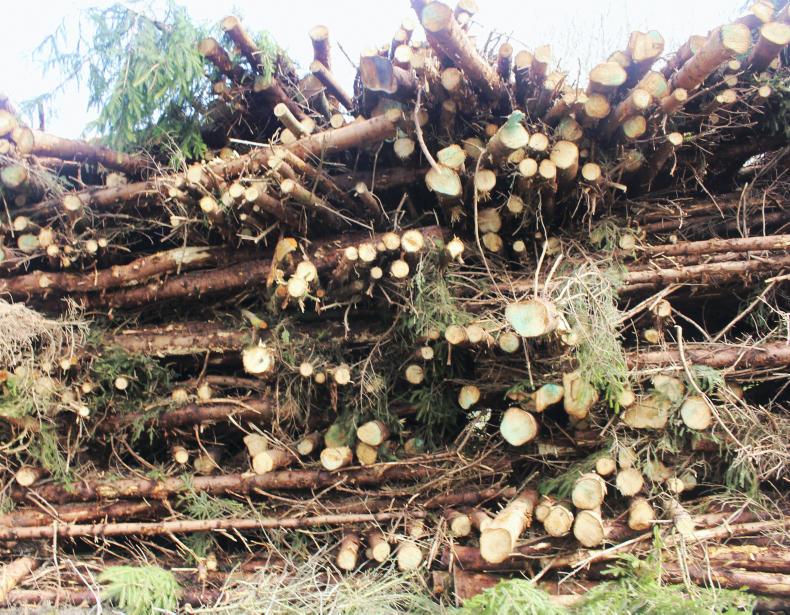Growers of energy crops may finally find a market for their harvest after the European Commission found the Government’s Support Scheme for Renewable Heat (SSRH) to be compatible with competition law on Monday.
Pig, poultry and horticulture farmers will be among those who will be paid to use renewable fuel for justifiable use of heat under the SSRH.
For example, a poultry farmer replacing a 320kW gas boiler with a biomass equivalent would receive €39,730/year for up to 15 years, according to the Sustainable Energy Authority of Ireland (SEAI), which is running the scheme. With woodchip cheaper than gas, the farmer will save over €70,000/year and repay the boiler in three and a half years.
Chipped or pelleted wood is currently the main biomass fuel available in Ireland and supply is expected to grow as more Irish forest matures for thinning. However a study commissioned by the SEAI to design the scheme showed that straw sold at 20% moisture for €60/t, and short-rotation willow sold at 55% moisture for €38/t were competitive against current woodchip prices or imported biomass.
If miscanthus production resumed in Ireland, the study estimated its performance would be similar to that of willow.
“It is estimated that in total 203,000ha could be available to grow short-rotation coppice willow and miscanthus,” the study found. The scheme will also support direct use of heat from biogas produced in anaerobic digestors, with slurry and waste more likely to be used than dedicated crops at current prices.
Read more
EU approves renewable heat scheme
Questions and answers on the renewable heat scheme
Growers of energy crops may finally find a market for their harvest after the European Commission found the Government’s Support Scheme for Renewable Heat (SSRH) to be compatible with competition law on Monday.
Pig, poultry and horticulture farmers will be among those who will be paid to use renewable fuel for justifiable use of heat under the SSRH.
For example, a poultry farmer replacing a 320kW gas boiler with a biomass equivalent would receive €39,730/year for up to 15 years, according to the Sustainable Energy Authority of Ireland (SEAI), which is running the scheme. With woodchip cheaper than gas, the farmer will save over €70,000/year and repay the boiler in three and a half years.
Chipped or pelleted wood is currently the main biomass fuel available in Ireland and supply is expected to grow as more Irish forest matures for thinning. However a study commissioned by the SEAI to design the scheme showed that straw sold at 20% moisture for €60/t, and short-rotation willow sold at 55% moisture for €38/t were competitive against current woodchip prices or imported biomass.
If miscanthus production resumed in Ireland, the study estimated its performance would be similar to that of willow.
“It is estimated that in total 203,000ha could be available to grow short-rotation coppice willow and miscanthus,” the study found. The scheme will also support direct use of heat from biogas produced in anaerobic digestors, with slurry and waste more likely to be used than dedicated crops at current prices.
Read more
EU approves renewable heat scheme
Questions and answers on the renewable heat scheme






 This is a subscriber-only article
This is a subscriber-only article










SHARING OPTIONS: